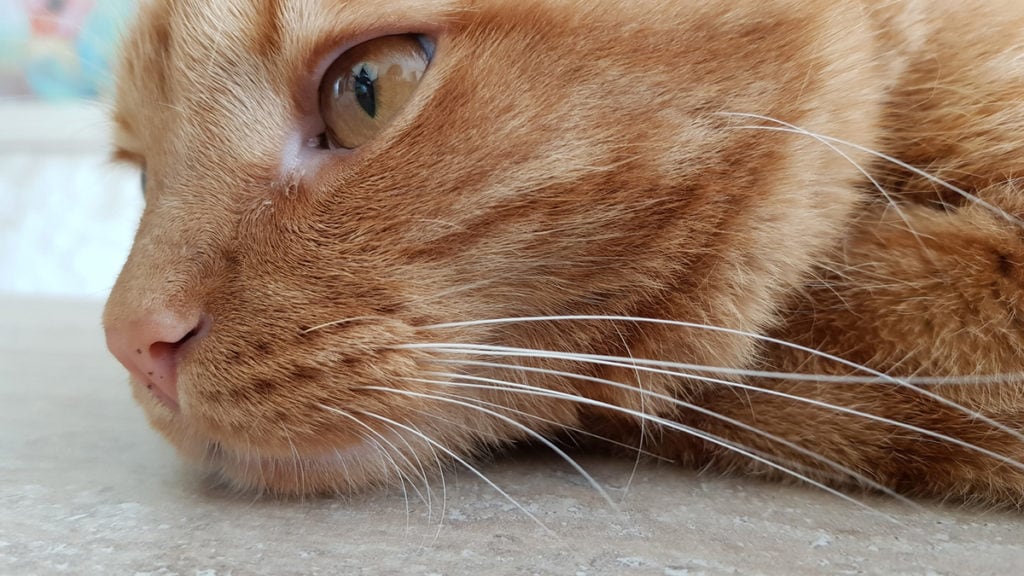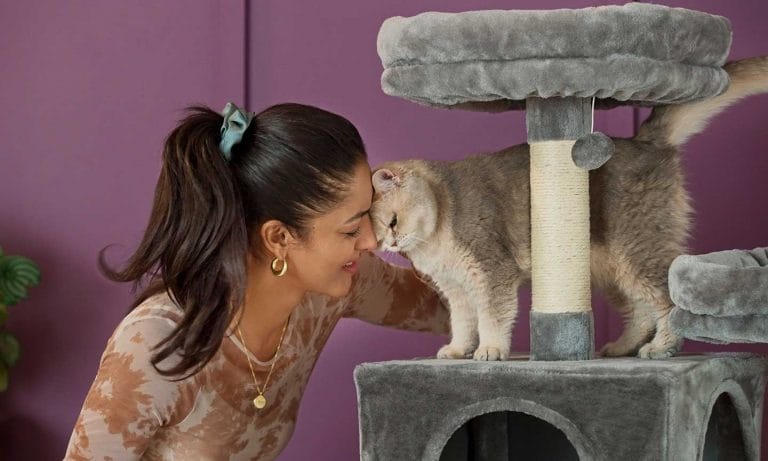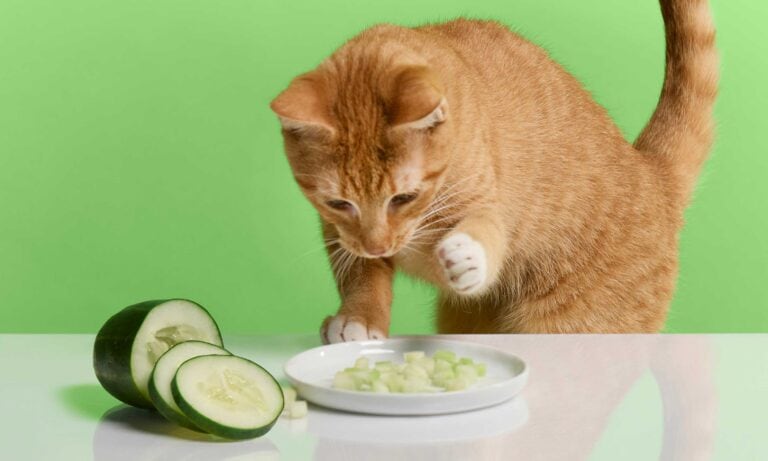You’re cuddling up with kitty when you notice a dark spot on her nose. It wasn’t there before, so immediately you wonder, “Do I need to take her to the vet?” Learn if a dark spot on a cat’s nose is normal and what signs to watch for if it’s something that requires a vet’s attention.
Spot the Signs: Is a Dark Spot on a Cat’s Nose Normal?
“Some cat caregivers worry about black spots on the noses of their cats,” says Adam P. Patterson, DVM, DACVD, a clinical assistant professor at the Texas A&M College of Veterinary Medicine & Biomedical Sciences In College Station, Texas. “The concern is if these black spots are cancerous, but in reality, the spots are a normal finding in young orange cats.
“Usually orange tabbies are more prone to these black spots, which is a condition known as lentigo simplex,” he adds. “These spots are somewhat comparable to freckles in humans and are not itchy or painful.”
Lou Anne Wolfe, DVM, at Will Rogers Animal Hospital in Oklahoma, agrees.
“The black pigment, sometimes a number of ‘freckles,’ is especially common in orange cats,” Dr. Wolfe says. “I see it in their mouths and inside the ear pinnae as well. This is usually normal.”
While these black spots or feline “freckles” can be a cute addition to a cat’s nose and face, if other, more unusual, marks or issues show up on their noses, it might warrant a checkup.
When to See a Veterinarian
“There should be concern if you find raised or inflamed spots that cause soreness and pain,” Dr. Patterson says. “Always have these types of spots examined by your veterinarian.
“Cats and dogs are prone to sunburn and subsequent skin cancer on noses, ears and around the eyes,” he continues. “Fair-skinned animals with light-colored hair coats are at the most risk.”
Limiting sun exposure for your cat can help reduce the risk of solar damage. For further sun protection, Dr. Wolfe advises using sunscreen.
“You can apply sunscreen to the nose, or you can go to the feed store and procure tattoo ink, which is used for livestock,” she says. “This can be applied to the nose and allowed to dry and may be more effective since animals tend to lick the sunscreen off.”
Consulting you veterinarian is always a good idea, especially if your cat has fair pigment. Because your vet knows your cat personally, she can customize a plan to help protect your kitty’s delicate nose.
“Remember that wet or dry noses are not a sign of illness per se,” Dr. Patterson says. “Whether your pet’s nose is dry or wet is largely related to the temperature and humidity in their environment. Lethargy, little or no appetite, weight loss, vomiting, diarrhea and inappropriate urination are some signs that better reflect illness.”
Familiarity with your cat can mean the difference between wellness and illness. Their noses are just one piece of the feline health puzzle!
By: Elisa Jordan
Featured Image: Via iStock.com/Ninel Roshchina
Share:









